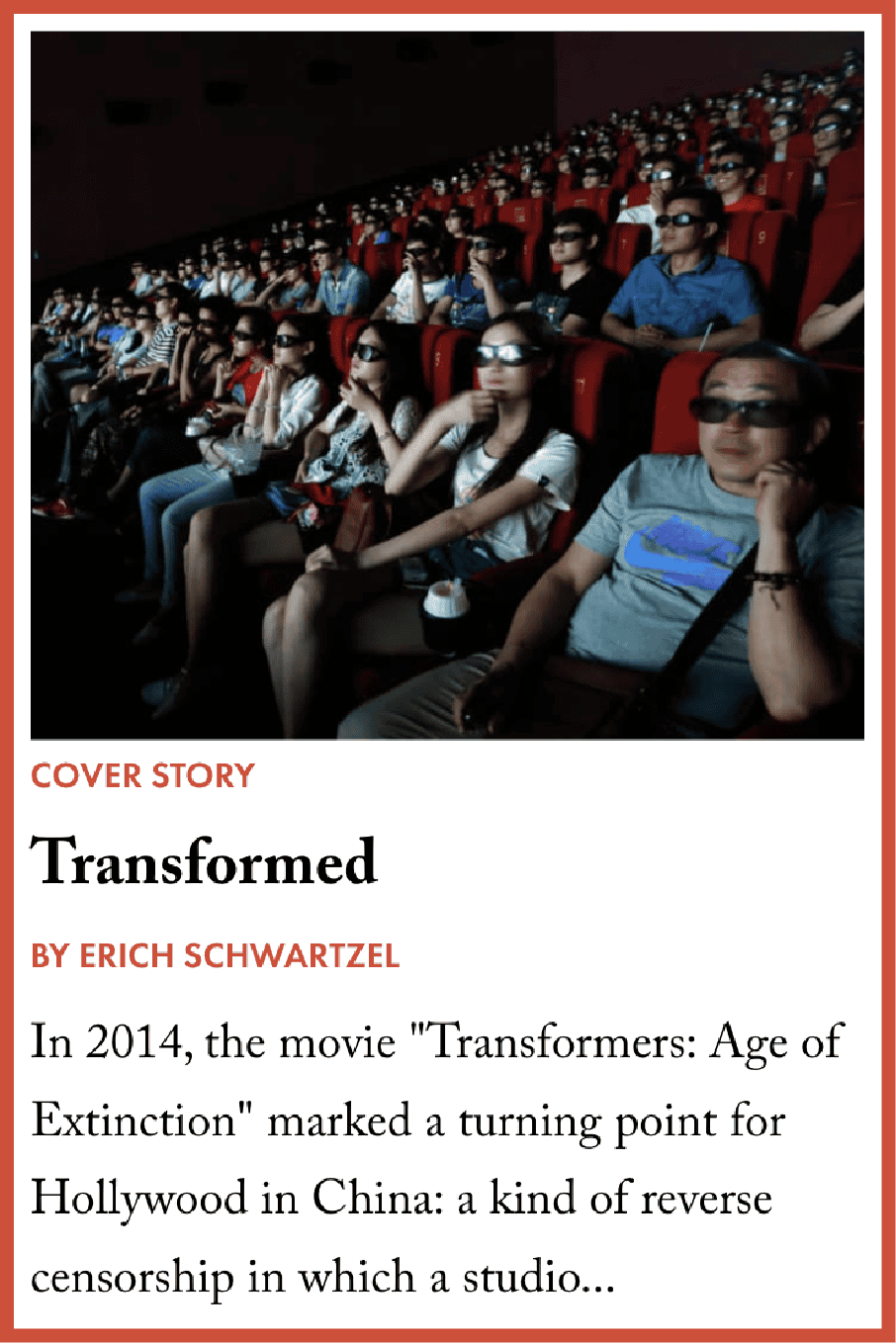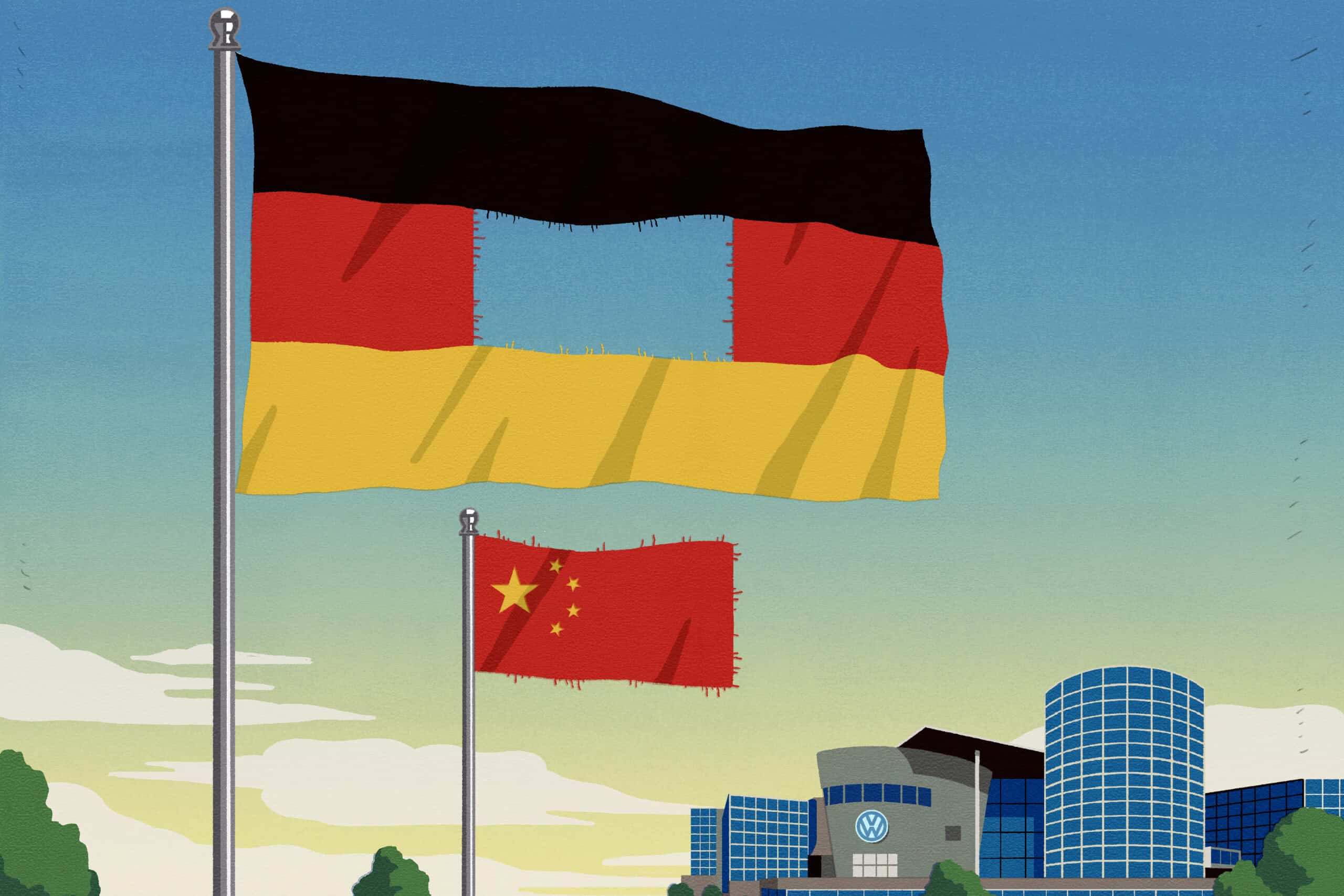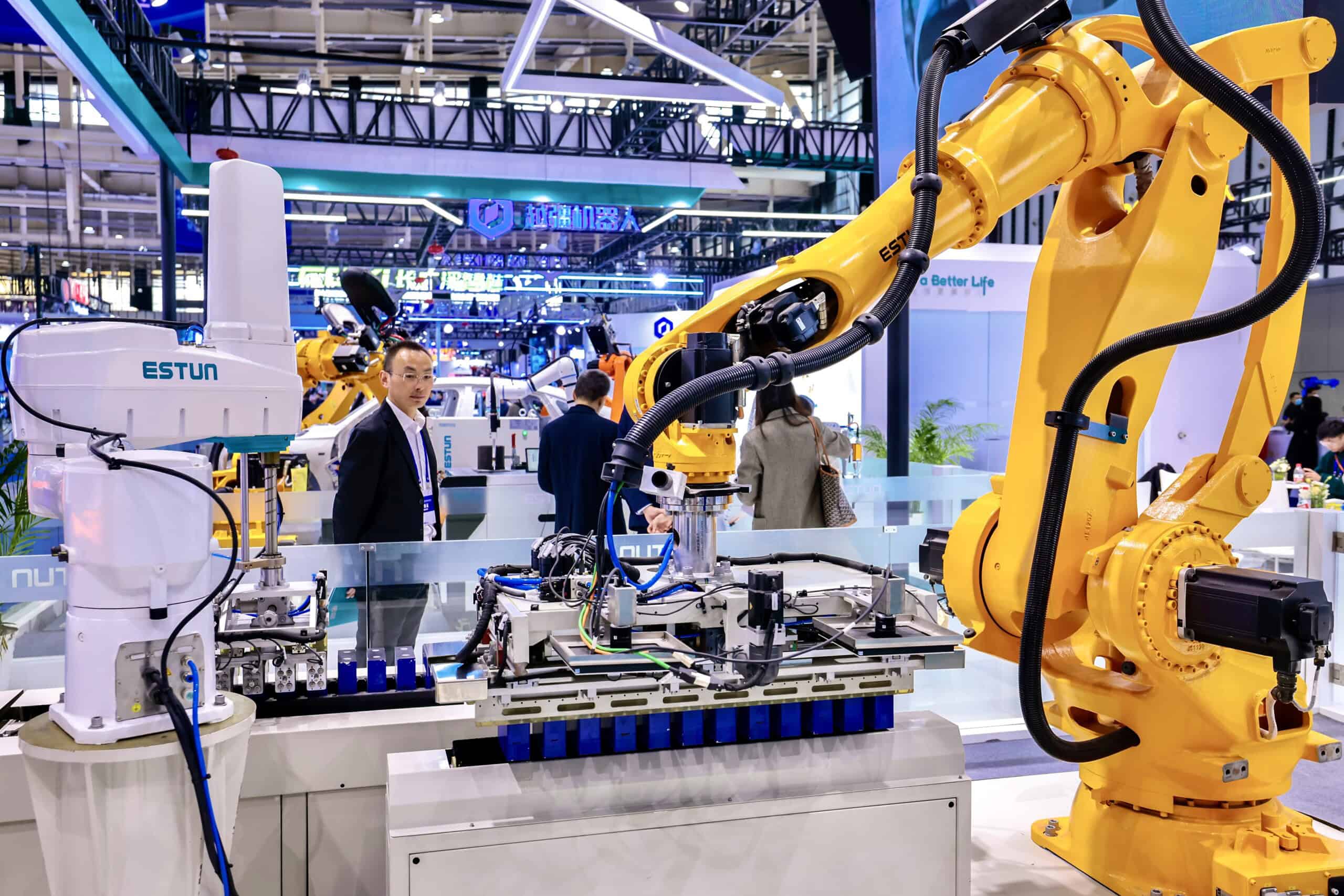
For down-on-her-luck Du Leying, the weight of society has become too much to bear. But after a series of comedic misfortunes leads her to cross paths with boxing instructor Hao Kun, she begins a journey that allows her to rediscover herself and the world around her.
An excerpt from the trailer for Yolo. Credit: Sony Pictures Entertainment
So goes the plot of Yolo, the top grossing movie in China this year. But unlike the movie’s main character, the Chinese box office is on the downswing. Ticketing revenue is set to fall by 25 percent this year, the largest year-over-year drop in China’s history as a major movie market, excluding the years of zero-COVID.
China’s drop in box office revenue is not a global anomaly. Theaters are struggling around the world as people opt to watch more movies at home and new phenomena, like so-called microdramas — minute-length vertical shows released episodically— gain popularity. But the box office decline in China far outpaces that in the United States, where receipts are down 5.6 percent year-over-year.
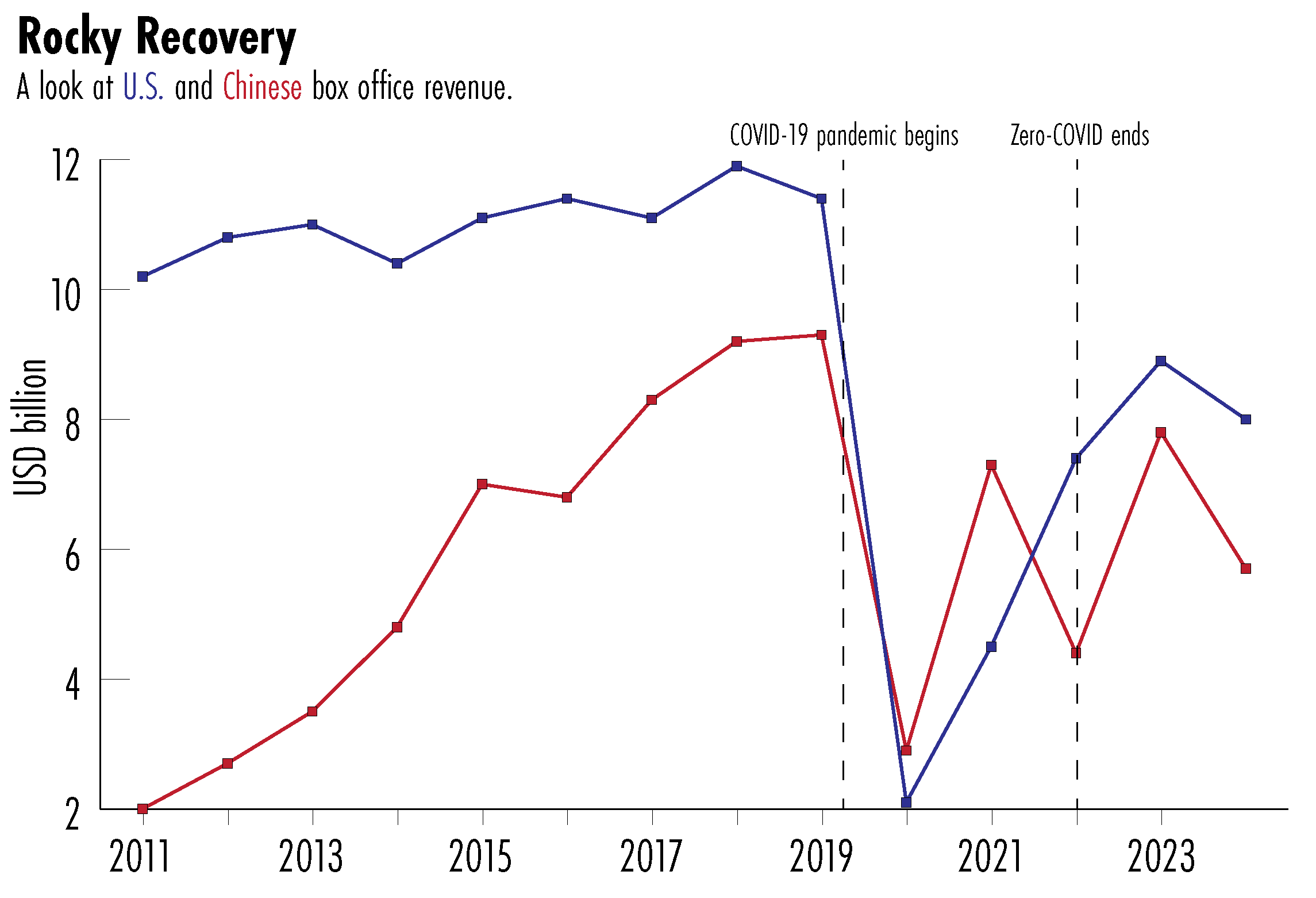
Analysts relate China’s box office woes to the country’s overall economic downturn, including its high youth unemployment. People under 30 made up less than half of moviegoers in China this year, down from 65 percent in 2018, according to a report released last month by the China Film Association and Alibaba’s Dengta Research Institute.

Others point to worsening state censorship after the Communist Party propaganda department’s 2018 takeover of the China Film Bureau, which had previously been staffed by officials familiar with the movie business.
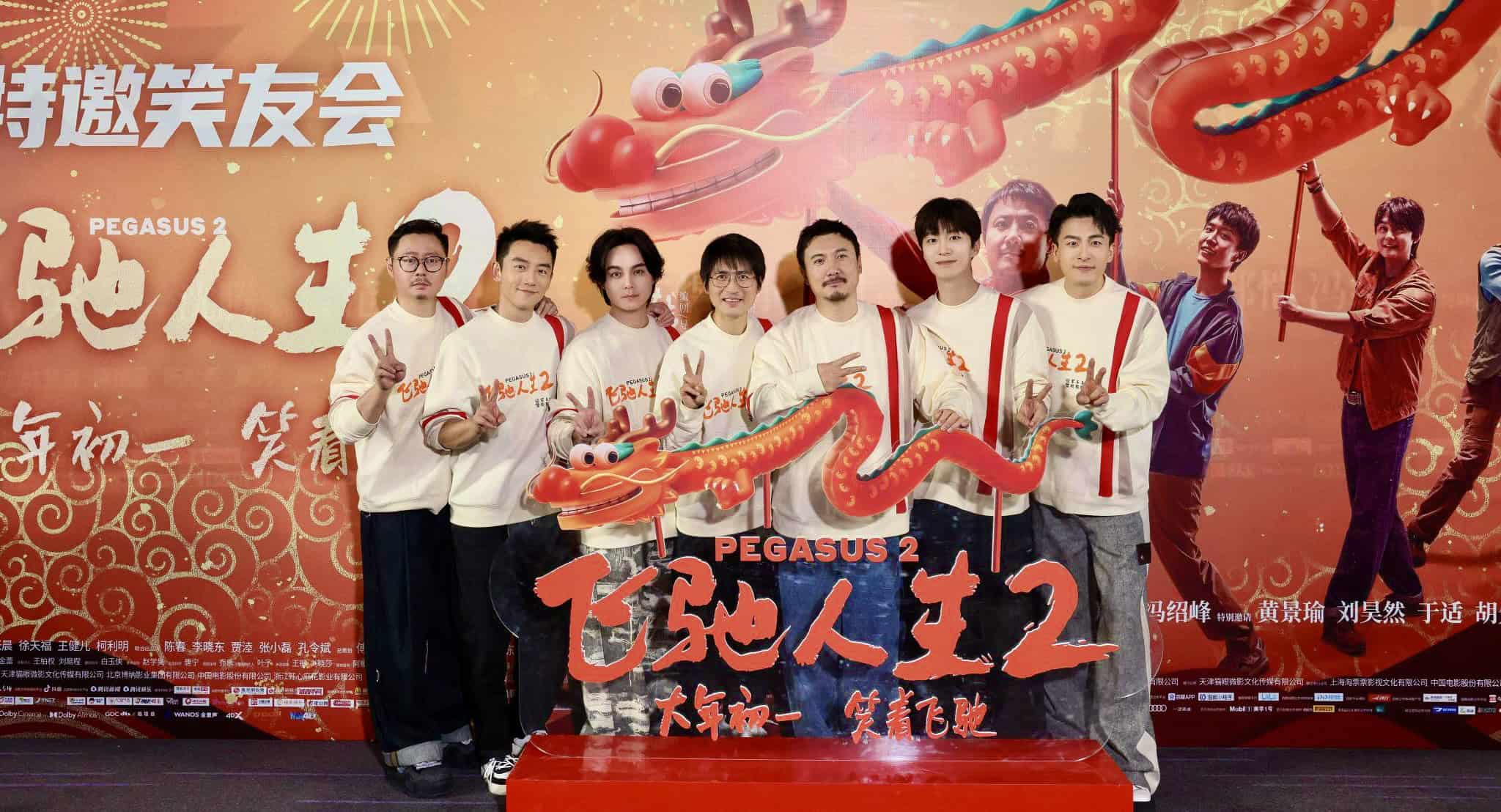
Stanley Rosen, a professor at the University of Southern California who studies the Chinese film industry, says this censorship — including a directive from Chinese President Xi Jinping to “tell China’s story well” — has led movie houses to pursue safer topics. “If you had a higher quality product, comedies would not be taking up 50 percent of the market,” he says.
Far fewer foreign films are now succeeding in the Chinese market. Only one American movie, Godzilla x Kong: The New Empire, placed in the top ten in China by box office revenue this year, pulling in around $130 million. But the last monster-gorilla installment made almost 30 percent more in yuan terms three years ago. Inside Out 2, the top grossing film in the world this year, ranked 29th at the Chinese box office.
Hollywood’s departure from the upper echelons of China’s box office is even starker when measured over the past fifteen years. In 2011, Transformers 3 made more than twice as much money in China as the top grossing Chinese film. And just eight years ago, three American movies were among the top five highest grossing in China.
“Everybody was excited” during China’s movie heyday, says Ellen Eliasoph, a producer who became the first Hollywood executive for a major studio in China when she opened Warner Bros.’ Beijing office in 1993. “There were several layers of risk for investors that were not present in the global film industry, but we were able to navigate successfully through all of that because the industry was growing.”
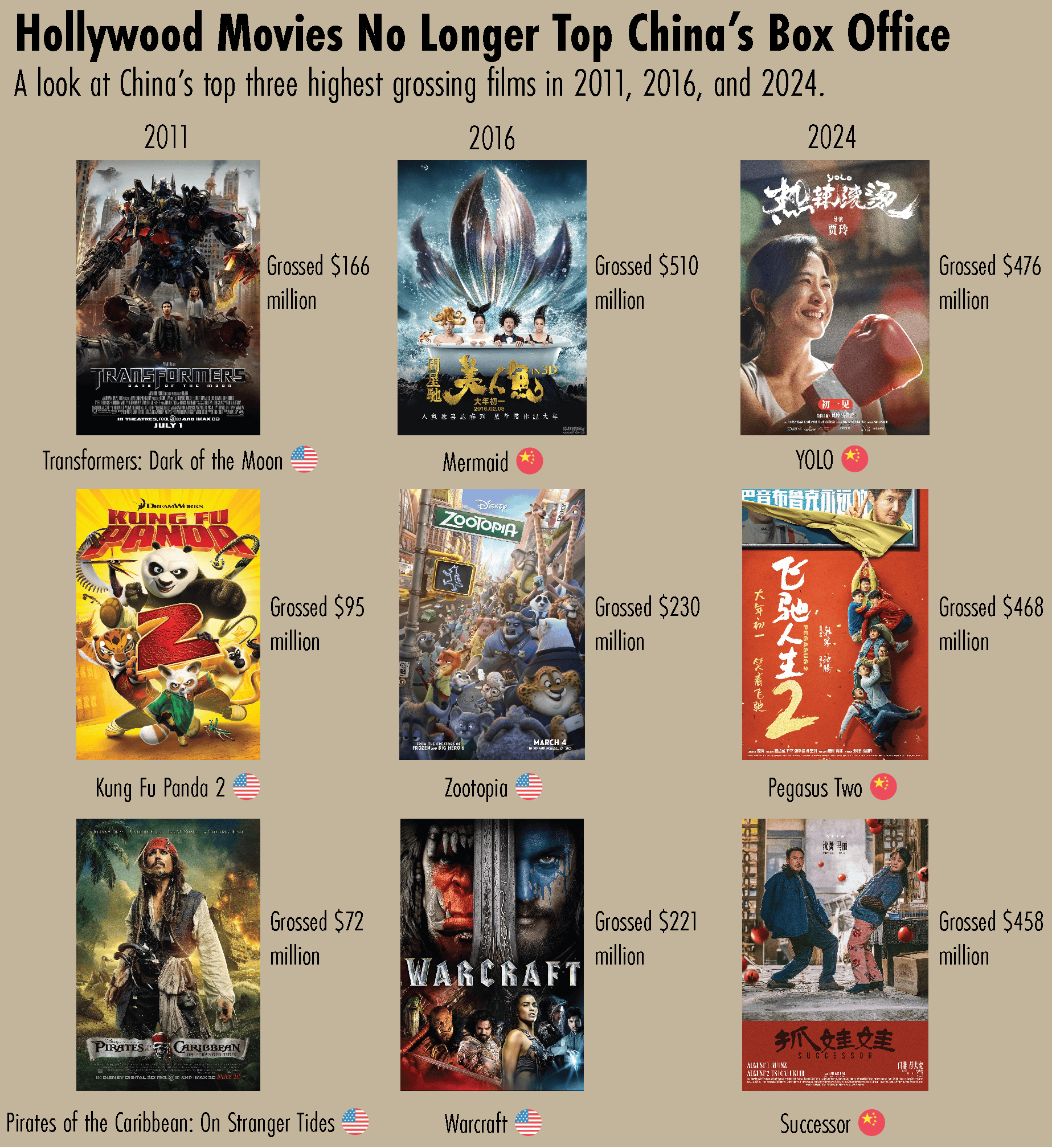
China’s movie business is similar to other industries in the country in that strong domestic competitors have emerged to challenge foreign companies over the last decade.
In 2006, China had just 3,000 cinema screens, according to the Center for Strategic and International Studies, and little experience with mass market movie production. That opened the door for the U.S. film industry, which raked in billions in Chinese box office revenue over the following years.
Chinese movie producers have now “learned what they needed to learn from Hollywood,” Rosen says. “As with all foreign products, once they learn how it’s done, they don’t need you anymore.”
China now houses several movie studios and more than 80,000 screens — with the official China Film Administration calling for 100,000 by next year.
Unlike other sectors, where a deluge of Chinese exports has the United States and Europe on edge, Chinese films rarely derive significant revenue overseas. Yolo grossed just $2 million in America, according to Box Office Mojo. Her Story, which Chinese media has compared to the U.S. movie Barbie, and which made $89 million in China this year, has hardly done better.
[Her Story‘s] success and backlash highlight the tension between the increasing acceptance of feminist ideas among the young generation of Chinese, and the state’s desire to keep the feminism fever in check.
Ying Zhu, the author of several books on Chinese cinema
That may be more of a function of how few theaters it played in. Filmgoers occupied every seat at a recent New York screening The Wire attended.
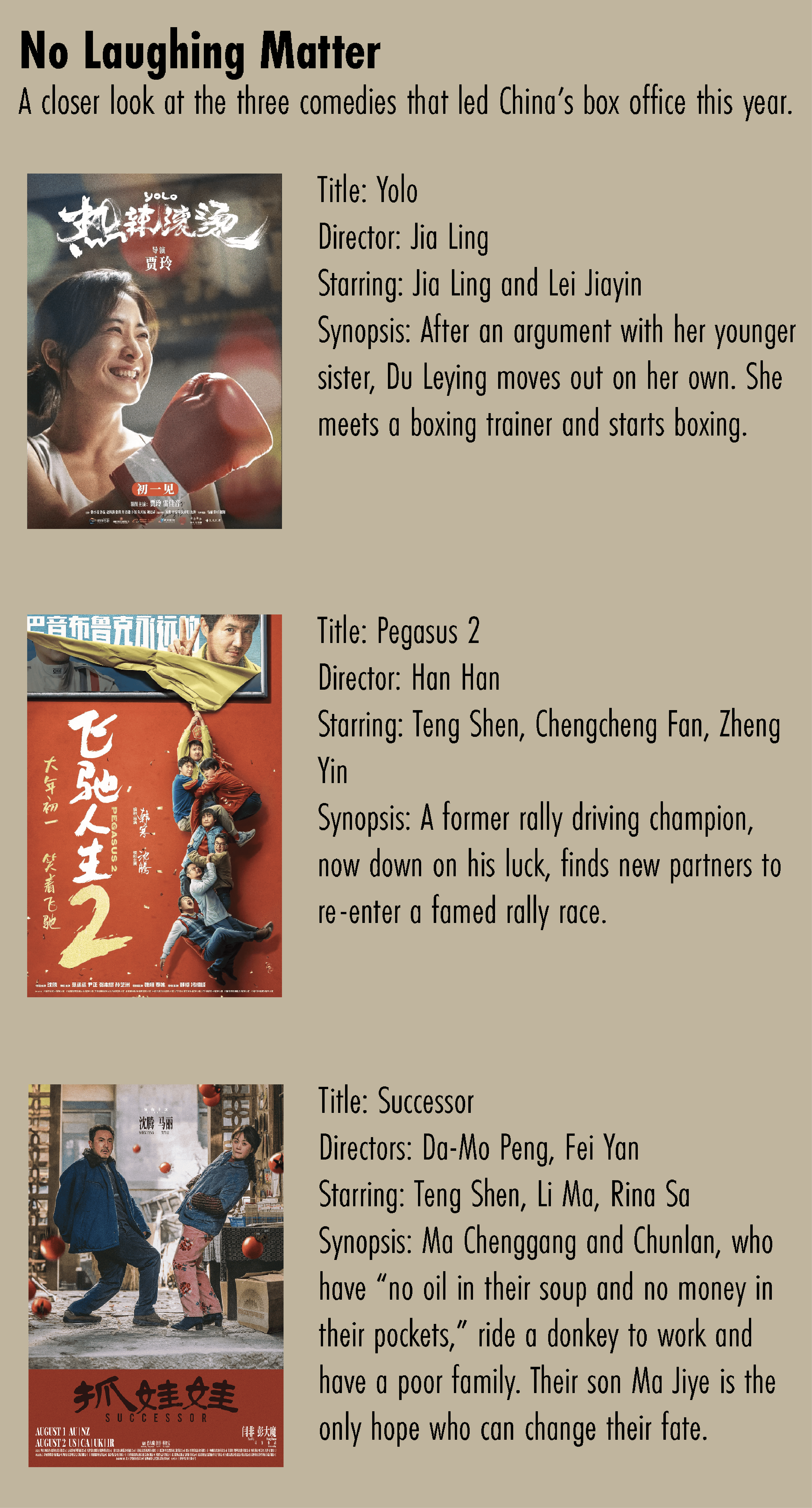
Leaving the theater, Stella Xu said she connected with the feminist message of the movie, whose main character is a single mother balancing parenting with a career. “Many people in China think mothers should do everything,” says Xu, 22.
The success of Yolo and Her Story has come as Chinese women make up a growing percentage of cinemagoers. Women made up 58 percent of total movie audiences this year, compared to 51 percent five years ago, according to the China Film Association and Dengta report. They also made up 77 percent of Yolo’s audience and 82 percent of Her Story’s, according to movie analytics firm Maoyan.
Despite its profits, some male commentators have criticized Her Story on Chinese social media for its portrayal of men. The Communist Party has long been intolerant of outspoken feminists, preferring to promote women in traditional roles. To Ying Zhu, the author of several books on Chinese cinema, the movie’s “success and backlash highlight the tension between the increasing acceptance of feminist ideas among the young generation of Chinese, and the state’s desire to keep the feminism fever in check.”

Noah Berman is a staff writer for The Wire based in New York. He previously wrote about economics and technology at the Council on Foreign Relations. His work has appeared in the Boston Globe and PBS News. He graduated from Georgetown University.

